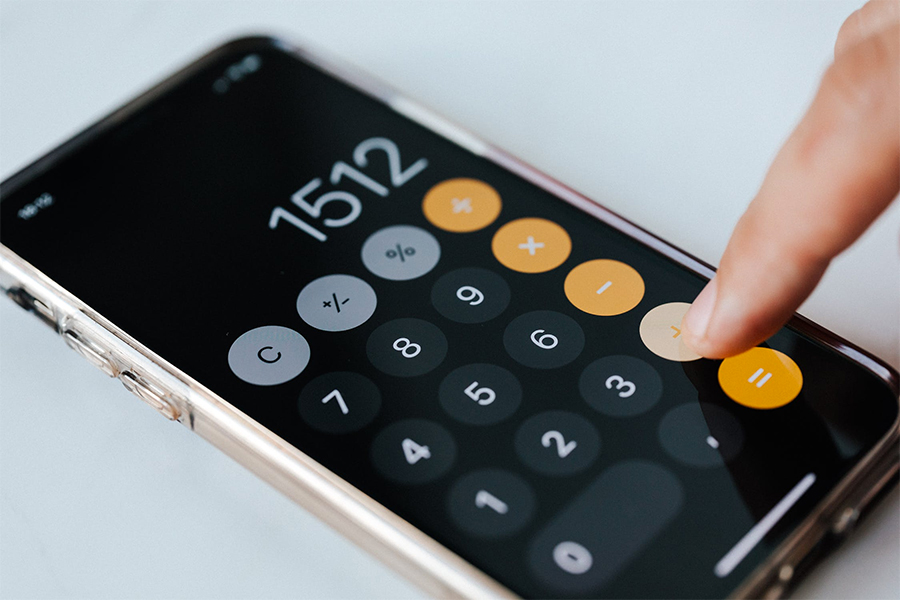On the first weekend of March every year, Unplug Collaborative, a nonprofit organization, hosts the National Day of Unplugging (NDU).
On this day, thousands of people around the world unplug from all their devices for 24 hours and enjoy the real world without technology’s interference.
In this post, we’ll have a quick glance at the Unplug Collaborative organization, and then take an in-depth look at the importance of the National Day of Unplugging and how you can celebrate it.
So, let’s begin.
What is the National Day of Unplugging?
Starting in 2009, the National Day of Unplugging has been giving people a much-needed break from technology, even if just for 24 hours.
Modern technology sustains 21st-century life, and over the years, we’ve become highly dependent on it.
From kicking our day off with morning news on TV to scrolling social media feeds before going to bed, technology drives our waking life.
And this has some serious consequences, including:
Sedentary Lifestyle
Sedentary lifestyle is one of the biggest problems in the United States. According to the Centers for Disease Control and Prevention (CDC), “more than 60 percent of U.S. adults do not engage in the recommended amount of [physical] activity. Approximately 25 percent of U.S. adults are not active at all.”
And modern technology is one of the reasons why people aren’t physically active.
The World Health Organization (WHO) recommends 150 minutes of exercise per week for adults. That’s a mere 30 minutes of movement a day for five days a week.
But we’re not even meeting these numbers.
And one of the main reasons behind this is that we’re busy, even when we don’t need to be.
We don’t have to check our social media every minute, play our favorite games all day, and binge-watch media content for hours. But most of us do it anyway.
And this results in us moving less than required, causing us to live sedentary lifestyles and then face the long-term consequences.
Decreased Focus and Attention
“What we do find with technology like smartphones and tablets is that they have the tendency to increase our absent-mindedness, reduce our ability to think and remember, to pay attention to things, and regulate emotion,” says Dr. Sharon Horwood, a senior lecturer in the School of Psychology at Australia’s Deakin University.
“Most of us have our phones within arm’s reach. Even the possibility of a message, a call, or something happening on social media is enough to divert our attention away from what we are doing.”
Inability to focus and pay attention for more than a few seconds is becoming one of the most severe problems in the world. And that’s not even your fault.
With technology putting everything at our fingertips, our brains don’t have to work so hard to do minor things like focusing, calculating, and memorizing.
Not working hard has quickly become a habit for the brains of millions of people. But, since not everything in the world relies on tech, we face a bunch of problems when we do need to use our brains with focus and attention.
Learn more about this in my post, “Real-Life Effects of Being Too Tech-Dependent.”

Chronic Stress
Social connections are essential. They help you learn, grow, and improve your social and emotional intelligence.
And social media today plays a crucial role in this. It’s what helps us connect with the huge world around us.
But as beneficial as social media is, researchers say it’s one of the primary causes of chronic stress. Why?
The Pew Research Center describes it as follows:
“Stress might come from maintaining a large network of Facebook friends, feeling jealous of their well-documented and well-appointed lives, the demands of replying to text messages, the addictive allure of photos of fantastic crafts on Pinterest, having to keep up with status updates on Twitter, and the “fear of missing out” on activities in the lives of friends and family.”
The American Psychological Association (APA), in their Stress in America™ 2017 survey, also found that “stress levels run higher in people who check their phones constantly for messages, mentions, and new posts.”
Besides stress, social media overuse is also linked with problems like loneliness and depression.
Digital Dementia
Coined in 2012 by German Neuroscientist Manfred Spitzer, the term digital dementia describes a series of neurological problems caused by prolonged technology use.
Many experts say digital dementia could soon become a “modern-day health epidemic.”
One with digital dementia suffers almost identical symptoms to dementia. The only difference is that while dementia affects people as they age, digital dementia can affect even kids with developing brains.
Digital dementia symptoms include:
- Inability to recall information
- Brain imbalance
- Loss of gray matter and changes in white matter (in the brain)
- And more…
Learn more about it in my post, “Digital Dementia: Consequences of Outsourcing Your Brain to Smartphones.”
Sleep Disorders
There are two aspects to how technology affects your good night’s rest: blue light and digital overstimulation.
Blue light is something that the sun emits. And the trigger for your circadian rhythm is based on the blue light from the sun.
You feel drowsy in the evening because your brain notices the absence of blue light and tells your body that it’s time to start triggering the rest mode.
Today, however, our blue light exposure isn’t just from the sun. All LED screen-based gadgets emit blue light. And since we don’t stop using our gadgets in the evening, our bodies can’t trigger rest mode properly.

Another way modern technology harms your sleep is by overstimulating your brain when it needs to rest and focus on background tasks like healing and detoxification.
Your brain is responsible for transferring everything you see, observe, and learn to your long-term memory. And the night is the time when the brain shuts down other activities and focuses on background tasks.
Now, since many people use their phones before bed, the brain stays active. This causes you to toss and turn for hours. And if or when you do manage to drift off, your sleep quality won’t be optimal.
Other Mental Health Issues
These are just a few health effects that come with prolonged tech use. Others include loneliness, depression, anxiety, obesity, low emotional and social intelligence, and more.
Learn more about them and how to protect yourself in the Healthier Tech Blog.
Benefits of Unplugging
Several studies have shown that unplugging from technology for a certain period has many benefits.
Experts say that when you unplug from your phone, especially your social media, it allows you to focus on yourself rather than on what someone else might be doing.
And the National Day of Unplugging is here to help you with that.

How to Celebrate the National Day of Unplugging
On National Day of Unplugging, all you need to do is disconnect from modern technology. This includes your TV, computer, phone, and other stuff that consumes your valuable time.
On this day, instead of mindlessly scrolling through your waking life, you’ll spend some time going tech-free and seeing the world directly through your own eyes instead of a screen.
Here are some of the ways you can celebrate this day.
Go Offline
The first requirement of the National Day of Unplugging is that you turn that green online button to gray.
You’ll need to refrain from using your social media, watching television, using your computer, and even playing video games.
Completely tech-free is what you’ll be on this day. And instead of doing what you usually do in your daily life, you’ll replace it with some real-time activities.
Explore Nature
In this fast-paced modern world, we rarely get a chance to enjoy nature. So, on the NDU, you can grab your friends or your loved ones and spend the day exploring nature.
Being in nature “reduces anger, fear, and stress and increases pleasant feelings. Exposure to nature not only makes you feel better emotionally, it contributes to your physical well-being, reducing blood pressure, heart rate, muscle tension, and the production of stress hormones. It may even reduce mortality, according to scientists such as public health researchers Stamatakis and Mitchell.”
Spend Time with Your Loved Ones
If you don’t want to go out, at least spend some time with your loved ones.
Psychologists believe spending time with your loved ones is a great way to strengthen relationships, share emotional states, and influence young minds.
Besides that, unplugging your gadgets and using your free time for your loved ones will also:
- Increase your sense of purpose and belonging
- Reduce your stress and boost your happiness
- Improve your confidence and self-worth
- Help you cope with traumas
- Encourage you to change or avoid unhealthy habits like excessive drinking or lack of exercise

Check Out the NDU 2023 Webpage
Besides these, Unplug Collaborative has a list of around 200+ ideas that you can use to celebrate the National Day of Unplugging. This list includes things like:
- Urban scavenger hunts
- Raising money with an unplug-a-thon
- Becoming a pen pal
- Decorating a smartphone nap-sack
- Woodworking with kids and the home depot
- Hosting an unplugged dining night
- Creating some ephemeral art
- And much more…
To find this list, you can visit their website NationalDayofUnplugging.com, and click on their “What to Do for NDU 2023” page.
Besides These…
National Day of Unplugging isn’t just a fun occasion. It’s also an opportunity to identify areas where you can reduce your tech usage and be more present in the real world.
See, modern tech, although beneficial, affects our physical, mental, emotional, and psychological health every single day. And since it’s not really possible for us to quit the convenience of modern technology, the only option left is to build a healthier relationship with it.
And this relationship cannot just be for the National Day of Unplugging. It’s a lifestyle you can adapt to ensure you and your loved ones live safer, healthier lives alongside modern technology.
Visit the Healthier Tech Blog to learn more about the day-to-day effects of modern technology and what you can do to protect yourself.
Final Thoughts
Although the National Day of Unplugging is just one tech-free day, I recommend you celebrate it. It’s more fun than you’d think.
But as I already mentioned, the real benefit is in what you do in the remaining 364 days. Those are the days that make a real difference. So, make it your lifestyle to:
- Unplug from your gadgets in the evening after a long, tiring day
- Give yourself one tech-free day after a long week
- Give yourself at least a tech-free week after a long year
And this is part of what maintaining a healthier relationship with technology is all about.
Visit The Healthier Tech Podcast, where experts from different industries discuss ways to live alongside technology in a safer, healthier way.
We’re available on all major platforms, including Apple Podcasts, Amazon Music, and Spotify. So, check it out.








